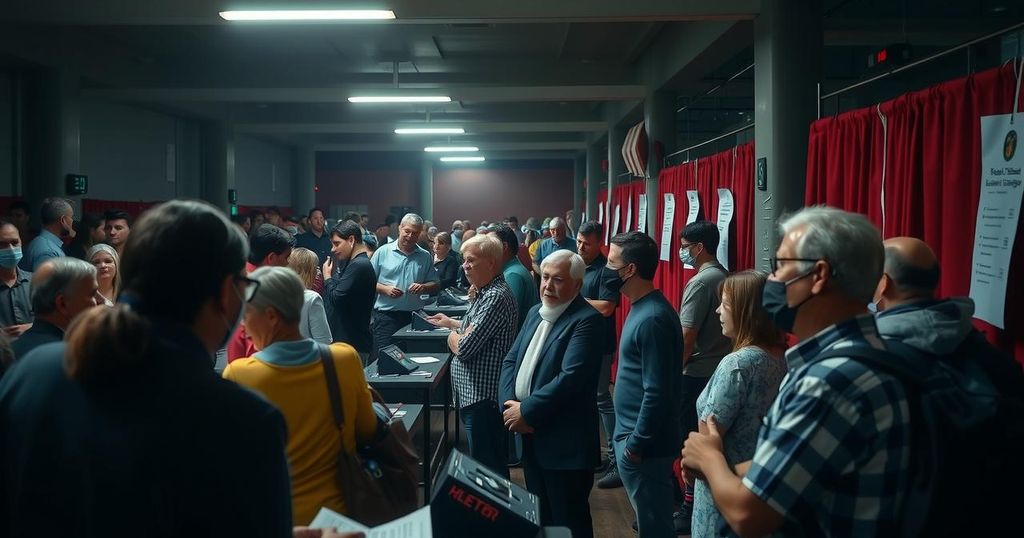Uruguay Prepares for Pivotal Presidential Election Amidst Economic Stability

Uruguay holds a vital presidential election on Sunday, with candidates Yamandu Orsi and Alvaro Delgado in a tightly contested runoff. Opinion polls suggest a close race, with less than 25,000 votes potentially deciding the outcome. The political environment remains moderate, contrasting sharply with regional tensions, as both candidates strive to unify voters from various factions ahead of the election.
Voters in Uruguay will participate in a crucial second-round presidential election on Sunday, concluding a significant electoral year in South America. The contest has opposition candidate Yamandu Orsi from the Broad Front facing off against Alvaro Delgado from the National Party, who is supported by the Colorado Party. Opinion polls indicate a tightly contested race, with only a narrow margin expected between the candidates, suggesting that fewer than 25,000 votes may decide the winner.
Uruguay’s political climate is characterized by its relative moderation and lack of extreme partisan divides, contrasting sharply with the more polarized environments seen in neighboring countries such as Argentina and Brazil. Here, coexistence between conservative and liberal factions is noteworthy, potentially lessening any tensions surrounding the election outcome. Polling stations will be open from 8 a.m. to 7:30 p.m. local time, with initial results anticipated shortly after the polls close.
Yamandu Orsi, who has articulated a vision for a “modern left” and previously garnered 43.9% of the votes in the initial round, seeks to assure voters of continuity while promoting progressive policies. In contrast, Alvaro Delgado, who received 26.8% of the total vote, aims to maintain the current government’s trajectory, leveraging the popularity of President Lacalle Pou despite his constitutionally mandated absence from the race.
Both candidates hope to win over voters from smaller parties and those who abstained in the first round. Yet, recent political debates have not significantly shifted voter sentiment. As analysts observe, satisfaction with the current economic conditions may influence the electorate’s decision. Nicolas Saldias of the Economist Intelligence Unit remarked that, “There are few indications that voters are clamoring for significant political change.”
This election will ultimately determine whether Uruguay, amidst a global trend of declining support for incumbent parties, will embrace new leadership or continue with its existing government framework. With inflation and living costs affecting citizens worldwide, the stability and ongoing economic robustness that Uruguay offers may play a crucial role in influencing voter preferences on Sunday.
Uruguay is a small South American nation notable for its political stability, relatively liberal social policies such as the legalization of marijuana, and its modest yet growing economy. The upcoming presidential election highlights the contrast between the moderate political landscape of Uruguay and the more polarized political climates of its neighbors. As the country approaches a crucial vote, the implications of economic conditions and voter sentiments indicate potential shifts in party dynamics, particularly in light of the recent global trend of incumbent parties losing electoral support.
In summary, the impending presidential election in Uruguay on Sunday presents a pivotal moment for the nation as it weighs the leadership of two contrasting candidates amidst a climate of moderate political tension. With a close race expected and significant implications for the future governance of the country, all eyes will be on the electorate’s response to economic stability amid global challenges. The final results will reveal whether Uruguay’s voters will embrace continuity or seek change in their leadership.
Original Source: www.ndtv.com








